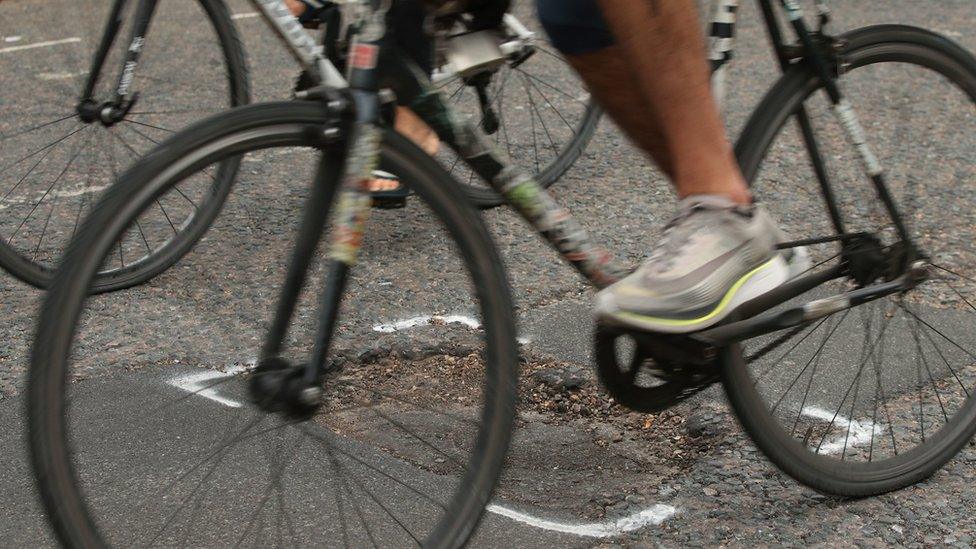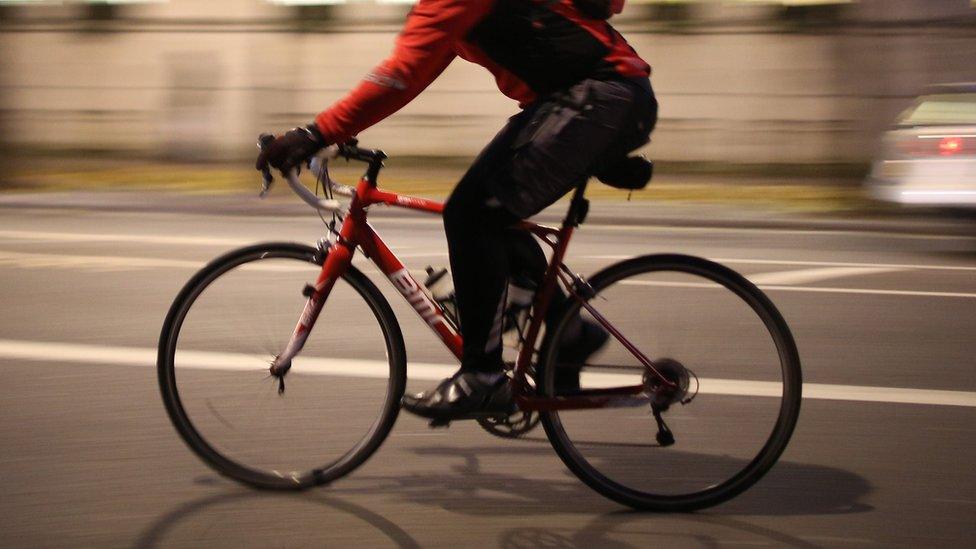Highway Code may include 'Dutch reach' to keep cyclists safe
- Published
What is the 'Dutch reach'?
Measures to help protect cyclists, including encouraging people to adopt the "Dutch reach", are expected to be included in the new Highway Code.
The method of opening a car door using the hand furthest from the handle forces drivers to turn and look behind them for passing cyclists.
The code will also give updated guidance on how to avoid the dangers of close overtaking of cyclists.
Cycling UK said the move was a major step for cycle safety.
In 2017 101 cyclists died in road traffic collisions.
The announcement was welcomed by Jeff Boulton, whose son Sam died after being hit by the door of a taxi while cycling in Leicester in July 2016.
He was knocked off his bike, and fell into the path of a moving van.
His father said he was relieved the government was planning to update its guidance.
"If only one person is saved from Sam's tragic fate because the driver or passenger has adopted the Dutch reach... then that's a life worth saving," he said.

Cyclist Sam Boulton died after being hit by the door of a taxi
Duncan Dollimore, head of campaigns at Cycling UK, which has campaigned for changes to the Highway Code, said he was delighted by the announcement.
"Close overtakes and people opening car doors in front of cyclists are not only dangerous, they also put people off riding a bike," he said.
Rule 163 of the Highway Code states that when passing cyclists, drivers should give "as much room as you would when overtaking a car".
Cycling UK is calling for the code to include guidance on a minimum distance to give when overtaking, suggesting a minimum of 1.5m when travelling under 30mph and 2m over 30mph.
The organisation also recommends the code should require vehicles to give way to pedestrians and cyclists when turning.
It also wants rules advising cyclists to wear helmets and fluorescent clothing to be changed, arguing they currently promote "victim-blaming" and deflect responsibility from drivers in the case of collisions if the cyclist does not follow this advice.
Cycling and walking minister Jesse Norman said that while Britain had "some of the safest roads in the world" there was still more to be done to protect cyclists, pedestrians and other vulnerable road users.
"Cycling and walking are increasingly being understood as crucial parts of an integrated approach to issues of health, obesity, air quality and town and city planning.
"But this will only happen if people feel safe on the roads," he said.
Highways England has also announced a £3m contract with Sustrans to improve the National Cycle Network.
- Published1 June 2018

- Published12 August 2018
